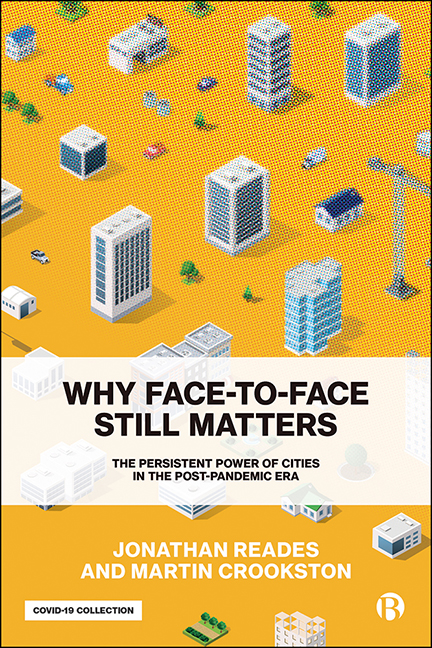7 - What, Then, for 21st-Century Places?
Published online by Cambridge University Press: 04 January 2022
Summary
But what is to be the fate of the great wen? The monster called … ‘the metropolis of the empire’?
William Cobbett, Rural Rides, 1830Across the arc of this book we’ve tried to set out our thoughts on the factors that will push and pull activities and people to and from our cities over the next few decades. A single book cannot possibly do justice to them all, and it would be a very ambitious one that tried to explain them by means of a single integrating theory. So, we begin by returning to our original ‘ask’: we want you to think, to question and to dispute. We will undoubtedly get things wrong; but if you approach the future with a critical eye and the question ‘Why? Why should it be different this time?’, then we think the post-industrial landscape might be littered with marginally fewer white elephants.
We are particularly interested in the nature of the glue that holds the great urban concentrations together. What distinguishes the ‘sticky’ activities from the ‘footloose’ ones, and what is it about the sticky stuff that makes it much more likely to remain concentrated in the big, expensive hubs and not the smaller, cheaper ones? We’ve argued that this has to be seen as the interaction between four distinct layers: the network, where ‘stuff’ is projected into local, national and global relationships; the market, where information rarely flows as easily as we might like to think; the firm, where the costs of coordination affect growth, structure and location; and the individual, who needs to try to make sense of this wealth of noisy, complex and, above all, uncertain data about the world around them just to keep their company, their job and their life afloat.
All the way through we’ve highlighted the importance for the most knowledge-intensive industries and individuals of proximity and face‑to‑face contact. To boil it down, if the choice of place is driven by the importance of ‘being there’, then how might different sectors of the economy manage the trade-offs between proximity and technology, and between push and pull?
- Type
- Chapter
- Information
- Why Face-to-Face Still MattersThe Persistent Power of Cities in the Post-Pandemic Era, pp. 161 - 216Publisher: Bristol University PressPrint publication year: 2021



